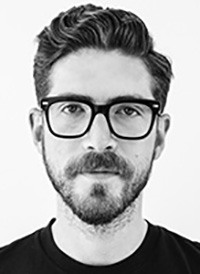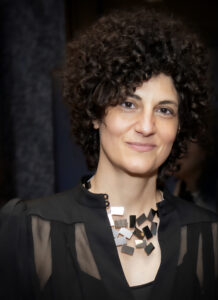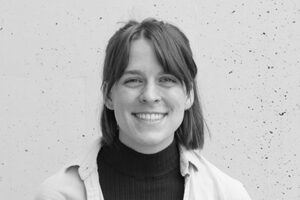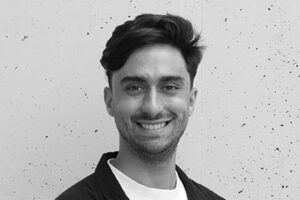January 21, 2025 Spring Lectures and Exhibits Series Lineup
This spring, the University of Tennessee, Knoxville’s College of Architecture and Design welcomes an impressive lineup of designers, artists, and professionals as a part of our Spring 2025 Lectures and Events Series.

Building Design Businesses Out of Necessity, Jesse Reed, February 10
Over the course of his career, Reed has founded and co-founded five businesses in the profession of graphic design. Ranging from a design office to SaaS product, he will discuss how and why each company was started, along with their successes and failures. More than anything, showcasing the natural development of each company will be at the center of this conversation. Reed was never formally educated in “business”, but he hopes to inspire other designers to pursue entrepreneurial goals even if their qualifications might say otherwise.
Staging Encounters with Landscape Matter, Aroussiak Gabrielian, March 3

Possible Worlds Symposium, March 7
Nearly one-quarter into the 21st Century, architecture continually finds itself entangled in a host of planetary-scaled issues—climate crises, energy deficits, and associated ecological risks; pressure on global material and logistical exchanges; ever-growing global information infrastructures, and other emergent techno-social conundrums of the late digital age. Architecture (as objects) is often the venue through which these overlapping conditions play out, and architecture (as a discipline) is particularly good at projecting inventive ways of thinking and being within them. As a relational discipline, architecture is particularly suited for examining the relationships between things, and how they might be rearranged toward new and different ends. Accordingly, a fundamental task of the discipline is to imagine things that do not yet exist and to explore the implications of how they might come to fruition (often through representation).
This symposium aims to assemble critical conversations about the role of architecture and architects in crafting futures, projecting possibilities, re-worlding the world. This symposium is organized around three overlapping sub-categories: environmental imaginaries, material imaginaries, and social imaginaries. In such worlds, material economies might be organized around ecologies, environmental questions might be sociopolitical by definition, and publics might be formed through their dealings with matter. These overlaps are inherently multi-scalar, engaging varied discursive vectors and varieties of creative-intellectual discourse.
Possible Words is led by Assistant Professors Micah Rutenberg and Mark Stanley, with support from steering committee Associate Professor Catty Dan Zhang and Assistant Professors Frances Hsu, Jeremy Magner, Micah Rutenberg, and Mark Stanley. The symposium will be held in the University of Tennesse, Knoxville’s Art + Architecture Building.

“Disorderly Constructs” is an animation series, exhibition, and lecture culminating Julie Kress’s teaching and research as the Tennessee Fellow. The work offers new perspectives on how we interact with and preserve our natural surroundings within the complex entanglements of nature and technology. Physical stop-motion animations, an inky pen plotter machine, bouncy hair simulations, and a digitally preserved wilderness come together in a playful blend of digital precision and messy improvisation. As a transplant to Tennessee, Kress explores the region through her technique of digitally harvesting and altering landforms with 3D scanning, what she refers to as “landscape taxidermy”. Her scanning and animation process highlights creativity and slowness in an era of digital automation, prompting deeper reflection on human roles in capture, transcription, and replication.

Here is my argument: the tools we use dictate what we make, and what we make dictates how we are able to communicate with one another. As the tools we use become increasingly standardized, corporatized, and opaque, so too do the things we make, and the ways in which we communicate. Therefore, it’s the responsibility of a designer, if they are really committed to communication as a practice, to create opportunities to break and complicate this paradigm.
For my practice, this means positioning myself somewhere between the hacker and the Luddite; put another way, I adopt an ethos of irreverence, inquisitive intensity, and hands-on experimentation and apply it in a way that challenges conventions of how design should look and what it’s able to say in 2025 and beyond. At the core of my work is an interest in the “human factor” — the way we express ourselves through technological tools and platforms (from Photoshop to YouTube and beyond) in funny, original, creative, awkward, pathetic, and embarrassing ways.
Support for the College of Architecture and Design’s lecture series is championed by the Robert B. Church III Memorial Lecture Fund.
Unless otherwise noted, lectures are held at 5:30 p.m. in McCarty Auditorium, room 109, in the Art + Architecture Building.


